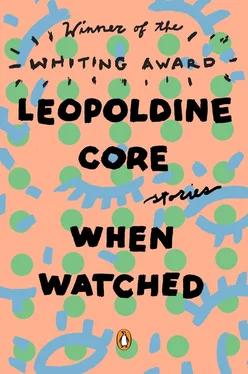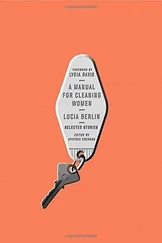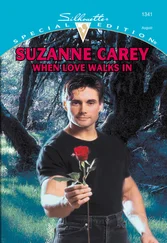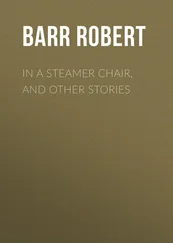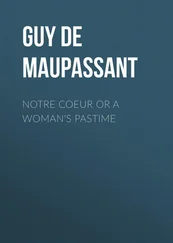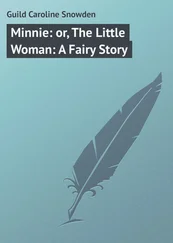Lenora had spent the past year meeting with an actual drug mule — Angie — for research. She had read an article about the drug bust online and grew very curious about the sort of woman who boards an afternoon plane with giant packets of heroin stuffed up into the chamber of her vagina. Lenora became obsessed with Angie and soon began visiting her in jail with a tape recorder.
Secretly it made Hank a little sick.
“He loved it,” she said.
“What? Why didn’t you tell me?”
“I just did.”
“But I had to ask.”
“He said it was satisfying.” She let out a huff.
“Oh come on. Who cares what he said ?”
“It was sleazy,” she said and resumed her distracted silence, which seemed now to contain annoyance.
“What are you thinking?” he asked.
She paused a second more. “That I should try to do some work while I’m stuck here. I have that contest I’m judging.”
“The stories?”
“Yeah.”
He scratched some dried food off the thigh of his jeans, flicked it into the air. “I love you,” he said. “I’m sorry you’re stuck there.”
“It’s actually kind of nice. I like that nobody knows who I am — I like being nobody.” She went quiet again. “I’ll call you later.”
“Okay. Tell your mom uh — tell her hello.”
“Hello?”
“Well. Give her my love.”
“She might not remember you.”
He blinked into space.
“Hank, she hardly recognizes me .”
“Tell her anyway,” he said, weirdly hurt.
“I will.”
Hank hung up and sank back into the sofa, looking around. Before him hung an oil painting of three milk cartons filled with yellow and orange roses. It didn’t give him any sort of feeling — never had.
Everything they owned came from an antique store, which seemed eerie to him, like they had no history. He felt like a visitor in the home of another man — a very important man who wrote book after book and fucked Lenora constantly.
Dazedly he pictured her naked chest, soft with a pale explosion of freckles and one red birthmark that she loathed. It lived under one of her breasts and resembled a little spoon. “I love it,” he would say to her in bed, putting his face near the spoon. Then she’d roll her whole naked self away, pull the sheet up, and groan.
Hank sat there picturing it — the spoon. The moment of seeing it before she turned. He wondered what Lenora was thinking about at that moment. Her mother? Another man? Existence?
The love always came this way — like a mallet. And then he saw stars. It didn’t feel good — the pictures that hovered at the front of his skull: Lenora kissing up the zipper of his jeans, then peeking up to say what she said once, four years ago: “I can’t believe I can have this.”
“What?”
“You.”
• • •
Hank woke up an hour later. He ran his tongue over the lemony fur on his teeth and swallowed — revolted, then shut his eyes again and lay there, tipping in and out of consciousness.
In a fog he observed whole hours fleeing his life forever. He kept picturing what he would do if he could move. Make a roast beef sandwich with mustard. Masturbate. Write seventy pages without stopping. Or pee — suddenly he really had to. He ignored the urge but it waged on and on and soon he had a vision of himself soaking the sofa.
I’m a neglected dog, he thought and then realized that in this scenario he was also the abusive owner.
Lenora had a theory about dog training that he never forgot. “You give them a treat when they’re good,” she said. “But only sometimes . No dog should be rewarded every time.”
Hank considered the chronic hope of a dog trained this way, a dog made to wonder: Will she give it to me now? How bout now? It seemed cruel to melt a being down like that — to nothing but desire.
Outside a bottle shattered and he was grateful for it. They lived on Riverside Drive and generally there was no one in sight, just joggers — haggard, anorexic ones. Maybe there were some kids out there, he thought, a smile on his lips. Getting tanked.
Hank glared down at his body, then ordered himself to stand. He felt tired, flabby and separate from the universe. Like an athlete without a team. Or a sport.
The apartment was dark and manicured, a long hall with the occasional foreign object on a shelf: an eel trap, a ceremonial African hat, a yellow-eyed devil in a shadow box. It seemed so many steps to the bathroom.
Hank had read that most depressed people didn’t know they were depressed, which fascinated him — being that he was so acutely aware of his own depression. This should feel good, he thought when the arc of urine crashed into the toilet. It doesn’t.
He didn’t wash his hands. He ran a green comb through his hair and turned before the mirror, examining his stomach in profile — the low mound. Then he gazed at his mouth, which had a slight duck quality. Quack, he thought, shutting his lips. Quack, quack.
It was a face that had been called strange as many times as it had been called — not handsome , not that word — but as many times as it had been kissed.
Hank returned to the sofa and crawled onto it. Loneliness stabbed him all over. But what is it called when your loneliness is worse around other people? He shut his eyes. Surely there’s some long German word for that.
Hank wished he were writing. He had written one good book but the world didn’t think so. Then he wrote another book but he didn’t love it and neither did the world. Now he was thirty-nine. He thought about his age every day. He also thought he would never write again.
He wondered how many other people were lying miserably on sofas in Manhattan. A fucking lot, he thought. Night had come down through the windows and across the room in long furry slabs. It made him understand suicide — the darkness did. A desire to take the night and put it inside oneself — that made complete sense.
Hank sat up and imagined himself dead on the blonde wood floor. He let out a big laugh. Death is just that, he thought. A punch line.
What’s the joke? he imagined someone might ask.
Your life is the joke.
Then he remembered something — a poem. He thought of the poem a lot — more than he thought of the woman who had written it, a woman he had dated in his twenties. The poem was called “Beautiful Things the Poor Can Have” and at first it made him squirm when she read it from her notebook. But by the end of it he had restrained a sob.
The poem was very literal minded — much like the poet herself. It contained a sort of grocery list of things the poor could have — beautiful things. He still remembered parts of it.
The poor can put their shoes on.
The poor can go for a walk.
The poor can say look at the moon it looks like my
mother. Everyone will laugh.
The poor can smoke a cigarette.
The poor can have a good idea that grows in the dark.
The poor can tell a lie and say sorry, that was a lie.
The poor can get in bed and have a dream.
The poor can wake up with a headache.
The poor can shuffle to the kitchen for water and see
their dog and feel okay.
The poor can sit in a chair — their favorite chair.
The poor can look at their own hand and feel
beautiful.
The poor can have a baby and often they do.
The poor can say look at my baby. Isn’t my baby
beautiful?
Читать дальше
